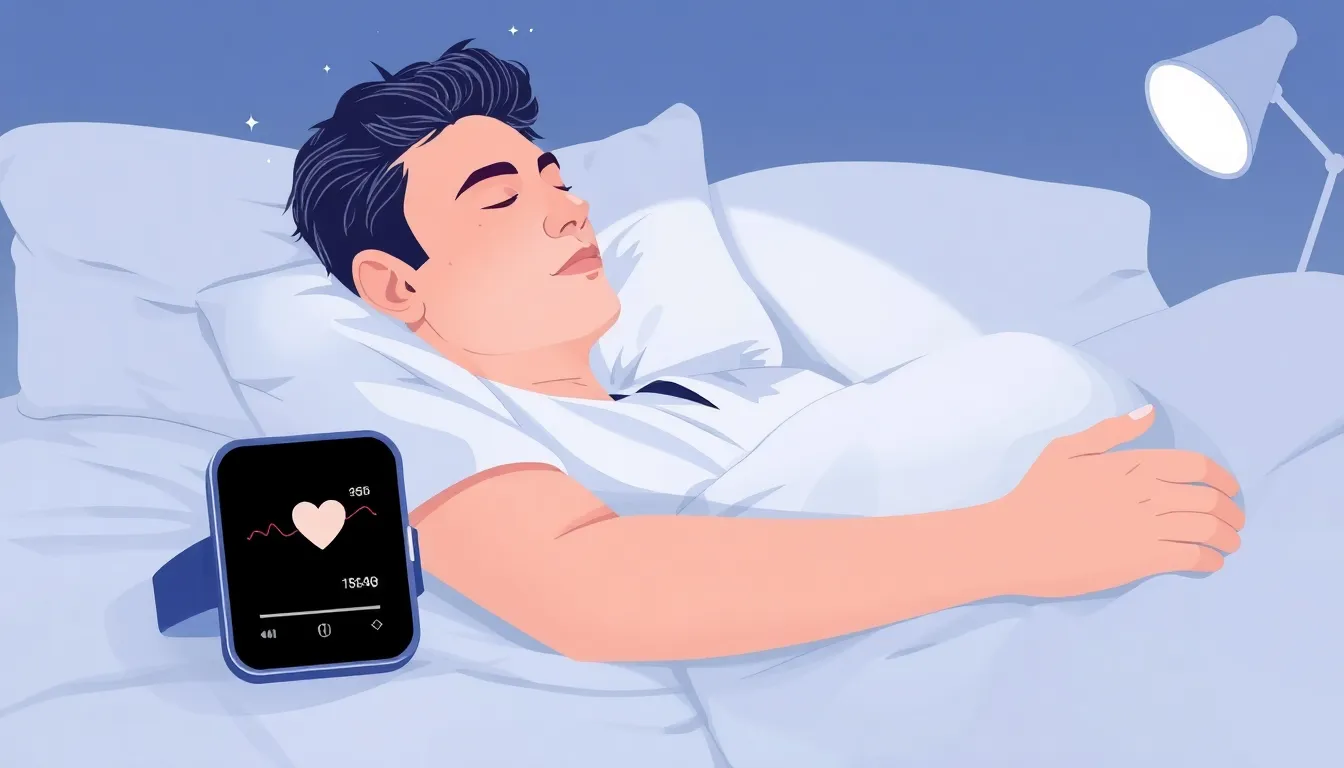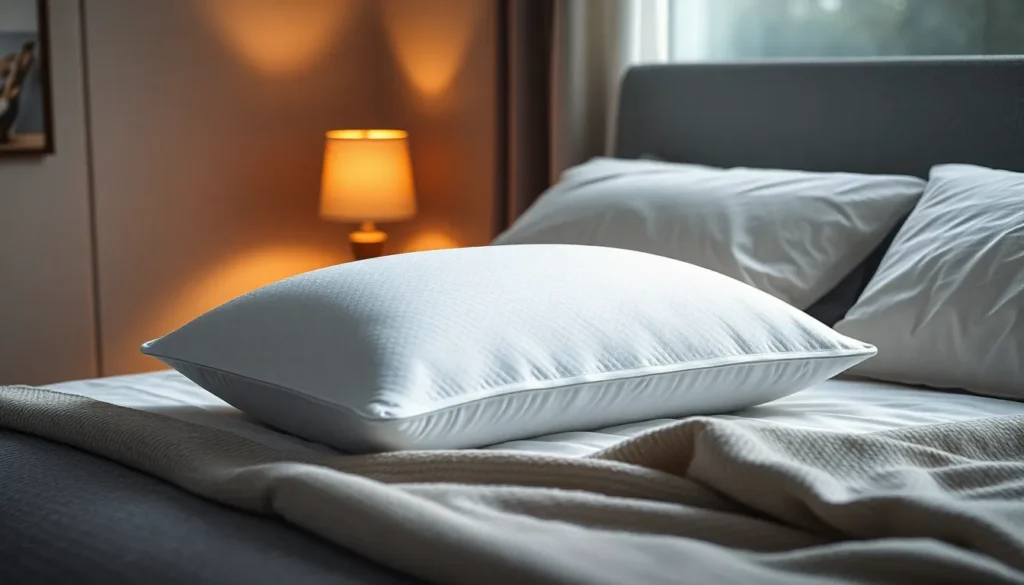Ever wonder what your heart’s up to while you’re dreaming of unicorns and world domination? Believe it or not, your heart rate during sleep is a crucial indicator of your overall health. A healthy sleep heart rate not only helps you wake up feeling refreshed but also keeps your ticker in top shape.
Healthy Sleep Heart Rate
Healthy sleep heart rate serves as an important indicator of cardiovascular health during rest. Monitoring this metric can reveal insights into overall well-being.
What Is Sleep Heart Rate?
Sleep heart rate refers to the number of heartbeats per minute during sleep. Typically, it ranges from 40 to 100 beats per minute for adults. Lower rates usually indicate better cardiovascular fitness. As the body enters different sleep stages, fluctuations occur in heart rate. During deep sleep, rates tend to decrease. REM sleep often sees slight increases as the brain becomes more active. Understanding these variations can help individuals recognize their sleep quality and heart health.
Factors Affecting Sleep Heart Rate
Numerous factors influence sleep heart rate. Age plays a key role; younger individuals often have lower resting heart rates. Stress levels can elevate heart rates during sleep, particularly in the presence of anxiety or worries. Exercise frequency significantly impacts resting heart rate; regular physical activity typically results in lower rates. Consumption of caffeine or alcohol can disrupt normal sleep patterns, leading to increases in heart rate. Additionally, sleep disorders, such as sleep apnea, contribute to irregular heart rates. Recognizing these factors can help individuals take steps towards improving overall sleep health.
Importance of Healthy Sleep Heart Rate

A healthy sleep heart rate serves as a crucial indicator of overall well-being. Monitoring this rate helps assess cardiovascular health and provides insights into sleep quality.
Connection to Overall Health
Healthy sleep heart rates reflect the body’s ability to recover during rest. Directly tied to cardiovascular fitness, lower heart rates often indicate better heart health. Age can influence these rates, with younger individuals typically experiencing lower averages. Stress and anxiety elevate heart rates, while regular exercise promotes a more stable heart rhythm during sleep. Studies suggest that maintaining a consistent heart rate during sleep reduces the risk of developing chronic conditions such as hypertension and heart disease. Recognizing these connections encourages people to focus on heart health as part of their wellness routine.
Impact on Sleep Quality
Healthy sleep heart rates significantly influence sleep quality. Individuals with optimal rates experience deeper and more restorative sleep phases. Fluctuations disrupt these cycles, leading to less refreshing sleep. Sleep disturbances, such as sleep apnea, raise heart rates, affecting overall restfulness. Evidence shows that quality sleep enhances cognitive function, mood stability, and physical recovery. Prioritizing healthy habits like reducing caffeine intake and managing stress can contribute to a more balanced heart rate during slumber. Aiming for heart rates between 40 and 100 beats per minute during sleep promotes optimal sleep architecture and supports rejuvenation.
Measuring Sleep Heart Rate
Measuring sleep heart rate provides valuable insights into an individual’s overall health and well-being. Different tools and devices assist in tracking these heart rate metrics effectively.
Tools and Devices
Wearable devices like fitness trackers and smartwatches often measure sleep heart rate continuously during the night. Many of these devices provide real-time data on heart rate fluctuations through sensors placed on the wrist or finger. Some smartphone apps also utilize camera sensors to monitor heart rate by analyzing subtle changes in skin color. Continuous positive airway pressure (CPAP) machines come equipped with built-in monitors for users with sleep apnea. Many options exist for consumers, making tracking accessible for anyone interested in improving their sleep health.
Interpreting Results
Interpreting sleep heart rate results involves understanding the typical ranges for different sleep stages. A resting heart rate between 40 and 100 beats per minute during sleep indicates a generally healthy cardiovascular system. Values lower than 60 beats per minute suggest exceptional fitness or an efficient heart response. Professionals often correlate elevated heart rates to increased stress levels, anxiety, or disturbances in sleep. Identifying consistent patterns across nights helps distinguish between normal fluctuations and concerning trends. Regular monitoring of sleep heart rate contributes to pinpointing potential sleep issues, empowering individuals to take proactive steps toward better sleep hygiene and overall health.
Tips for Achieving a Healthy Sleep Heart Rate
Maintaining a healthy sleep heart rate involves making specific lifestyle changes and optimizing the sleep environment.
Lifestyle Changes
Incorporating regular exercise significantly enhances cardiovascular fitness. Engaging in activities like walking, cycling, or swimming for at least 150 minutes a week benefits heart rate stability during sleep. Reducing caffeine intake, particularly in the afternoon and evening, helps prevent elevated heart rates during rest. Managing stress through practices such as meditation or deep breathing exercises can lower overall heart rates. Prioritizing a consistent sleep schedule encourages the body to establish a natural rhythm, promoting healthier heart function at night. Avoiding excessive alcohol intake also fosters better sleep quality and heart health. Lastly, staying hydrated throughout the day supports optimal circulation and heart activity.
Sleep Environment Enhancements
Creating a comfortable sleep environment encourages a balanced heart rate during sleep. Adjusting room temperature to a cool range between 60°F and 67°F aids in promoting deeper sleep. Minimizing exposure to noise by using earplugs or white noise machines can help reduce disturbances that disrupt sleep cycles. Choosing dark, blackout curtains prevents light interference, reinforcing the body’s natural circadian rhythm. Ensuring a comfortable mattress and pillows that support proper alignment enhances relaxation, directly impacting heart rate stability. Additionally, keeping electronic devices out of the bedroom reduces distractions and promotes a restful atmosphere, contributing to overall heart health during sleep.
Conclusion
A healthy sleep heart rate is essential for overall well-being and cardiovascular health. By understanding the factors that influence heart rate during sleep individuals can take proactive steps to improve their sleep quality. Incorporating regular exercise managing stress and optimizing the sleep environment are key strategies that can lead to a more stable heart rate at night.
Monitoring heart rate through wearable devices can provide valuable insights into sleep patterns and health status. By prioritizing these habits individuals can enhance their sleep architecture and wake up feeling refreshed. Ultimately a focus on maintaining a healthy sleep heart rate contributes not only to better sleep but also to long-term health benefits.



